When I wrote my breakdown of Mass Effect 3’s ending debacle, I took several days to properly organize my thoughts and make sure everything I was saying made sense. By contrast, when I wrote my critique of Dragon Age: Inquisition’s ending, it was a stream of consciousness straight from my raging, bitterly disappointed mind onto the vast wastes of the internet. So let me take a moment, now that I’ve calmed down, to reiterate the reasons I think Dragon Age: Inquisition failed in its ending. And why that halfhearted ending makes an otherwise remarkable game…less than the sum of its parts.
First of all I should say that I was exaggerating when I said this was a worse ending than Mass Effect 3. It clearly isn’t. Inquisition’s ending didn’t throw out the established rules, lore and setting of all the other Dragon Ages, or end with a stupid closing soliloquy from an omnipotent god caught in a feedback loop of stupid. It’s not even really a bad ending, it’s just so…underwhelming. It avoids all of the horrendous mistakes made by Mass Effect 3, but at the same time we get such a pitiful and anticlimactic ending that it renders all the awesome stuff we experienced along the way seem less special.
[The following is based on my 65-hour initial playthrough and the 15-hour 2nd playthrough (yes, you can plow through the main storyline in about 15-hours, probably less if you’re better at the combat than I am) to see if any of the major decisions changed the ending. Spoiler alert: They didn’t.]
1. Every Story is Isolated
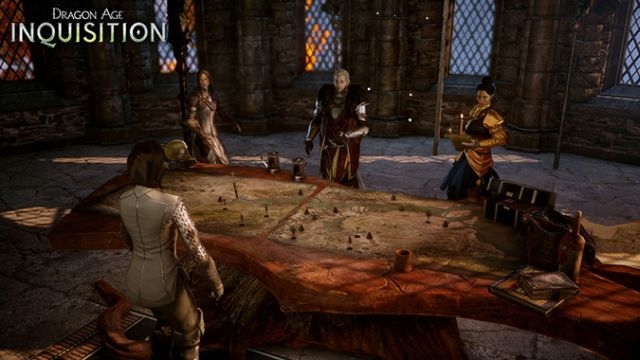
Interactive storytelling is hard, I get that, but that’s also why it’s so amazing when it comes together beautifully. Dragon Age: Origins remains one of my favorite RPGs because of how well all the stories meshed together, regardless of which origin story you chose or which choices you made along the way. Dragon Age: Inquisition has some remarkably good stories and some of the best characters I’ve encountered since Mass Effect 2. Yet very few of those stories actually interact with any of the others. They all take place in their own isolated little corners of the main story, sometimes being peripherally mentioned but never really impacting anything.
For instance, at first glance, I felt the new War Table was a wonderful new method of storytelling. Not only did it make me feel like I was really running a kingdom, but it allowed the game to tell me stories that impacted the entire world of Thedas rather than just the isolated corner my character was inhabiting. When Darkspawn appeared in southern Orlais I felt dread, for surely this was a sign that Corypheus was somehow summoning these creatures to aid him. Fortunately I had just saved Empress Celene’s life and secured Orlesian support for the Inquisition and thanks to Josephine’s skillful diplomacy I was able to call upon my new Orlesian allies to aid me. I thought this would help limit the Inquisition’s casualties in battle, though I was conscious of the fact that since Empress Celene’s treacherous cousin had held the loyalty of Orlais’s Chevaliers, I might not be getting their best troops. Still any little bit would help, or so I thought. After all, I didn’t want to deplete my own army when Corypheus might appear with his own at any time.
It’s a fine story in and of itself, and it really makes you feel like larger things are happening all around you. Unfortunately this feeling is completely undermined by the fact that the story doesn’t affect, nor is it affected, by anything else happening in the game. For instance my siding with Celene didn’t affect Orlesian support, nor did my destroying the Darkspawn army in anyway weaken Corypheus, and any troops I lost to fighting the darkspawn didn’t affect my army’s performance when I finally attacked Corpyheus’s army in the Arbor wilds. It didn’t even affect my approval rating with Blackwall, and he was the one guy I thought would be pleased with my destroying a darkspawn army.

And speaking of character approval, I never once saw a character’s approval rating come into play. It was a thing that might as well never have existed. Nor did any of the character’s side quests ever come to affect the ending or even the characters themselves.
When I helped Sten find his lost sword in Dragon Age: Origins, it had a lasting impact on his character throughout the story. He was no longer the standoffish and hostile brute I met back in Lothering…well okay he was, but not to me. Sten began to address me as Kadan (a sign of respect) and even began smiling when I talked to him, which up to that point I thought was physiologically impossible for a Qunari. When I helped Morrigan obtain Flemeth’s Grimoire and then slay the old hag, she became more genuinely confident rather than hiding her fear and hate behind a thin veil of nonchalance and arrogance. I didn’t treat Zevran very well my first playthrough (in my defense, he did try to kill me) and as a result when the Antivan Crows sent a second assassin, Zevran was quick to betray me. These are instances of where the character’s stories had real meat to them, where my actions directly affected the characters and in turn their characters affected the story at large.
Compare that to Inquisition. When I helped Cassandra find the lost Seekers, nothing really changed for her or the story at large. She seemed conflicted and then angry during the mission itself, but once we slew the Head Seeker and left? Outside of a couple conversations you have directly after the mission, it was like the whole affair never even happened. Again, the story itself is fine, I liked seeing her confront a betrayal of her fundamental beliefs. And I was genuinely curious what would happen after she was confronted with the fact that the Rite of Tranquility could be reversed and that her Order had become less a peacekeeping force and more a kind of Secret Police of the worst kind. Unfortunately my curiosity was never sated, because nothing changes. Are there perhaps subtle changes to Morrigan’s narration if Cassandra becomes the Divine? Perhaps, but considering that could take dozens of hours to get to that ending depending on when you do her quest, and compared to the very full and engaging character storylines of DA:O, it still falls depressingly short of good.

Even each individual zone in the game remains totally isolated from everything else. Completing the main storylines of the Western Approach doesn’t affect how the siege of Adamant plays out. I thought capturing the keep in the area would not only weaken Corypheus’s hold over the Grey Wardens, but provide my own forces with a forward base from which to launch an attack. Go through the game without doing a single sidequest though, and the siege of Adamant plays out just as it did before. Same with every other zone and every other story. They all play out as if in a vacuum, all the stories are within sight of each other but they never interact directly. The closest we get to any of the stories interacting is with the War Table and certain zones, such as building bridges across the sulfur vents or setting up watchtowers in the Hinterlands, but even then those interactions are minimal and don’t affect any other nearby story.
On the surface Dragon Age: Inquisition gives the player a false impression that they’re experiencing a vast tapestry of stories all woven together to form a coherent narrative, but once you dive beneath the surface you see its not a tapestry at all…it’s an anthology of stories. They all take place in the same universe, and maybe they even take place at the same time, but they can all be read independently of one another or ignored entirely. That’s not to say it’s a huge problem, anthologies can be fun too, but when you combine this with all of the game’s other major problems, things start to unravel.
2. Choices have no consequences
…Story and Choice as a Fundamental Pillar of the Game.
How you choose to lead is up to you, but remember, in Dragon Age: Inquisition choices have consequences. Making a new ally can also lead to the creation of a new enemy. – From Dragon Age Inquisition’s Promotional Material, emphasis mine.
That’s just a small section of the marketing campaign that preceded Dragon Age: Inquisition’s release, and yet in the game itself very few of the player’s choices have any real consequences. Let’s examine the very first choice we’re given in the game: your race. Go ahead and pick a Qunari. Now you’d think being a huge hulking beast from a strange land that has fought several bloody wars with her Chantry, Cassandra would be a little more suspicious of you than if you’d chosen human or elf for your race. Unfortunately aside from a few minor dialogue changes, Cassandra’s attitude towards you remains static. You’d think it would be harder to win her approval and trust, but she’ll happily thrust control of the most powerful organization in Thedas into your waiting hands, even if you make it perfectly clear you think the Chantry and everything Cassandra holds dear is a lie.
But okay, maybe its too much to ask to change the beginning of the story based on your race (even if that’s the exact thing that made Dragon Age: Origins stand out and started this whole franchise.) Let’s tackle some actual gameplay and see what kind of consequences the player experiences:
After being led by Cassandra to the Inquisition’s forward camp, you’re asked to make the decision on how to approach the Rift. Do you take the mountain path, and risk casualties among your soldiers. Or charge with your troops, but risk losing your scouts in the mountains? Or do you just flip a coin because there are no consequences for this choice?
I’m not asking for this early game decision to have butterfly effect ripples across the entire story. I didn’t expect the ending to shift because I lost some soldiers or scouts, but I did at least expect this to have some kind of change to the encounter with the Pride Demon at the Rift. I chose the scouts the first playthrough, and was gratified to see Archers (who I thought were the scouts) loose their arrows as the Pride Demon came through the rift. I thought, upon a second playthrough, that these archers would be replaced with more soldiers or different kinds of soldiers (two-hand wielders or something). Unfortunately there is no such change.
Nothing changes based on your choice apart from which road you take, a gameplay mechanic so simple that even Gears of War managed to integrate it on a regular basis.

But okay, it’s early in the game, maybe they just didn’t have the time or inclination to make the beginning amazing. Fine. Let’s skip to halfway through the story.
The Inquisition attacks the Grey Warden stronghold of Adamant to free them from the corruption of Corypheus. Once you’ve succeeded, you’re given the option of allowing the Grey Wardens to join with the Inquisition or exiling them from Orlais. In theory this presents sweeping and potentially dire consequences for the player. On the one hand, Grey Wardens are Thedas’s only line of defense against another Blight as it’s their mastering of the Darkspawn’s corruption that allows them to kill an Archdemon. Yet on the other hand, it’s that same corruption that allowed them to be twisted to Corypheus’s will. Allowing the Grey Wardens to serve the inquisition might give you a powerful ally against Corypheus should he somehow summon Darkspawn armies to his side, but at the same time Corypheus might use those same Grey Wardens to undermine the inquisition from within. It was a choice that demanded careful consideration. So what affect does this choice have on the story?
None.
Okay yes, it does end up affecting which portrait you get in the closing epilogue and Morrigan’s narration, but that’s it. Don’t take that to mean I don’t like “slideshow” endings, I have no problem with having slideshow endings or narrations, in fact I think both can be incredibly effective storytelling techniques. Both Dragon Age: Origins and Fallout New Vegas had great endings, and they both heavily relied on slideshows. My main problem is that Inquisition’s slideshow is anemic and unsatisfying compared to most games that have used this technique, including Inquisition’s predecessor Dragon Age: Origins. Inquisition’s epilogue covered only a few of the decisions the player could make and only told us the story of which character became the new Divine, all of your other companions were left in the dust. The epilogue for Origins covered every major choice you made in the game and told you the fate of every character you met, which made it infinitely more rewarding than Inquisition’s.

I will say this for the game, it was very good at making you think everything you were doing had a consequence, it’s why I was so happy with the game right up until the end when the illusion fell apart. However there was one choice given in the game that almost went out of its way to make sure you knew what you did was pointless, and that was the Templar mission. Early on in the game you’re given a choice to save the Templars or the Rebel Mages, with a specific warning that choosing one will deny you the other.
Now if you went for the Mages, you probably thought all the Red Templars you were running into throughout the game were the consequence of your choice, and you probably went through the game thinking that was the meaningful consequence of your actions. I, unfortunately, chose to side with the Templars in my first playthrough. So you can imagine my annoyance when, not only were there no rebel mages to fight outside of the attack on Haven, but even worse there were more Templars fighting for Corypheus than were fighting for me. I never once saw a Templar come to my aid in battle, or march along side my armies during the attack on Adamant. They didn’t show up to help me battle Corypheus at either the Well of Sorrows or in the final battle. Instead all I came across were legions of Red Templars? So what was the point of saving their order? They showed up at one brief cutscene when you seal the rift and that’s it. We might as well not even been given a choice in the matter (especially since the Templar mission is such a royal pain in the ass compared to the Mage mission.)

The only place I felt like I had any kind of impact on the story was at the Well of Sorrows. First you’re given a choice to either follow Corypheus’s followers down a crevasse to the well of Sorrows or undergo the Rites of Metel and pay homage to the Elven Gods. This does actually seem to affect how the Ancient Elves regard you and allying with the Elves allows you to bypass most of the combat by taking secret passages. Then you can choose whether the player character or Morrigan drinks from the Well of Sorrows. If Morrigan drank from the Well of Sorrows the she’s able to transform into a Dragon like her mother Flemeth once did and do battle with Corypheus’s corrupted dragon. If the player drank, you have to first subdue a dragon and bring it under your command using the power of the well. And that’s it. That’s the sum total of the impact it has.
And you know what, that’s actually fine, and had there been more small changes to the ending based on your choices I wouldn’t be writing this. Having small amounts of feedback throughout the course of a long game can be just as satisfying as having wildly divergent branching endings. Unfortunately Inquisition failed to deliver on either of those, because those consequences to the Well of Sorrows choices are the only real impact you’ll have on the story or ending. As much as I hate to keep comparing Inquisition to Origins, let’s look at how the choices my choices in Dragon Age: Origins affected the story.
My first character was an Elf from Denerim’s Alienage, and because the Arl’s son was a monstrous rapist, I gutted him like a pig in his own bedroom to save my cousin. Much later down the line I was trying to gather support for the Landsmeet, but because I had butchered the Arl’s son, I lost not only the support of that Arldom (which had fallen into Loghain’s hands) but I also was unable to convince the landsmeet that Loghain’s plot to sell the Elves into slavery was a bad idea, because now they all saw Elves as murderous psychopaths.

A seemingly inconsequential choice at the beginning of the game had a profound impact on the story later down the road, now that’s a consequence. So when the Landsmeet turned against me and Arl Eamon, did the ending change drastically? No, you end up having to go mano a’ mano with Loghain no matter what you do. Yet seeing the consequences of my actions from the beginning of the game having an affect on the story so late in the game was incredibly gratifying. It made me feel like a part of the story, a part of the world I was in, rather than merely a spectator. That all important word, immersion. That’s what I felt playing Dragon Age: Origin.
Meanwhile, my choice to choose the mountain path? To exile the Wardens? To Save the Templar Order? To save Empress Celene? I got no feedback from the game. And these were huge choices that implied dire consequences no matter which choice you made. By comparison, the choice to kill the Arl of Denerim’s son seems downright trivial, and yet I got more feedback from that than I did any of the major decisions with Inquisition. So I guess it shouldn’t have come as a surprise that, when I finally did reach the ending that –
1. The Ending is the very definition of an Anticlimax
Perhaps all of these problems could have been forgiven if at least, at the end, I’d had seen a battle worthy of all the buildup. To battle a Godlike Corypheus in the depths of the fade, perhaps even in the center of the Black City itself, while in the normal world our two armies clashed in a bloody maelstrom of steel and magic. Unfortunately we didn’t get any of that. Instead we got Corypheus alone in the ruins of the Temple of Sacred Ashes giving us a cliched (and hilariously misguided, given his track record of failure) monologue about his imminent ascension to godhood. Then we fought him, and it was a boss fight so pitiful I almost felt sorry for him at that point. The dragons I had killed throughout Thedas had been more challenge then him. His Fear Demon ally in the Fade was tougher than him. Most Red Templar mobs were tougher than him. His half dead dragon was tougher than him.
Then we blast him into the ether of the fade, go home and have some drinks with the guys and roll credits.
The closest I got to feeling excited in that final battle was when Morrigan grappled with Corypheus’s Dragon. Watching those two colossal beasts having at each other was a spectacular sight to behold, but every time I got close to feel some excitement it would cut away from the amazing aerial dragon battle to focus once again on the pitiful old man Corypheus. The last time I felt this apathetic towards a boss fight was when Ezio punched the pudgy old Pope to death in Assassin’s Creed 2.

As I wrote originally, it was such an anticlimax I thought it was Bioware trying to fake me out. This was all just a ploy to take me off guard when the real villain showed up, and the one thing convinced me that was the case right up until the end was Skyhold. Chekov’s Gun is an old literary axiom that basically says if you introduce something to the story, it better serve a purpose. The saying is from, of course, Anton Chekov:
Remove everything that has no relevance to the story. If you say in the first chapter that there is a rifle hanging on the wall, in the second or third chapter it absolutely must go off. If it’s not going to be fired, it shouldn’t be hanging there. – Anton Chekov
Skyhold is the gun hanging on the wall. Why did you give me a huge, epic keep and allow me to personalize it if we weren’t going to have an epic siege there? You don’t give the player a castle and then not attack it. Imagine Dragon Age: Awakenings if at the end of the game, the keep you spent so long rebuilding just… sits there, doing nothing. Or flying the SSV Normandy II into the Omega 6 Relay and then peacefully landing on the Collector Base without a single shot being fired. Or even better, imagine leading the counter attack on Earth at the end of Mass Effect 3 and finding no Reaper fleet or vicious ground battle being fought, and instead cutting to those last godawful 10 minutes immediately after landing.

Skyhold was the perfect setting for the climactic final battle with Corypheus. Defending the walls of the keep you’ve come to love, watching as Morrigan in Dragon form fights the Archdemon in the skies above the fortress, while great siege engines rain down fire and destruction. It would have been every definition of epic. There could have been so many amazing ways to make the Siege of Skyhold the epic ending we all needed. All of your characters would have been involved too, rather than just the 3 you chose to take with you.
It could have been a tense, bitter fight as the gates are shattered and Darkspawn come pouring into the courtyard where, without the help of the Grey Wardens, my soldiers are beaten back into the keep proper. Or if you kept the Grey Wardens perhaps the Darkspawn are scattered, leaving the Venatori and Red Templars to lead the vanguard of the assault. Blackwall and Cullen could lead the defense of the courtyard. Sera and Varric could direct the archers on the walls and rain death upon the enemy ranks or take potshots at the dragon. Cole could assassinate priority targets and cause chaos in the enemy ranks. Iron Bull and his Chargers could lead a vicious counterattack and buy the time necessary for Cullen to withdrawn his exhausted and wounded troops into the keep where the Inquisition would make its final stand.
A climax worthy of the term would have made Dragon Age Inquisition my new favorite RPG and I would have overlooked all the other problems with the game. Instead we got a pitiful whimpering boss who could barely put up a fight and made every other flaw in the game come through with glaring clarity. I don’t need a dozen amazing endings, I just need one good one.

Marching on Denerim at the head of the army I had worked so hard to build is still one of my fondest gaming memories. Sending packs of Werewolves to shred the Genlock Archers harassing me while a newly crafted Golem took on an Ogre with help from the stalwart Legion of the Dead was incredibly satisfying, it was a final battle that really made me feel like everything I did in the game actually mattered. All of the alliances, all of the sacrifice, all of the death: it had all been building towards this moment, and it was a moment that did not disappoint.
Mass Effect 2’s Suicide Mission remains the epitome of the epic ending for me. A mission in which everyone can die, including you, and an explosive finale that sent a chill down your fucking spine.
Even Mass Effect 3 had a damn good conclusion until they fucked it up in the last 10 minutes. That final charge towards the Citadel Beam may have seemed stupid, but it was the stupidity of desperation. It was a desperation that said “we either do this now or we go extinct.” It was a desperation I felt right down to my bones.

Those are the endings that will stay with me for a long time. Not because I’ll remember the specifics of why or how or when, but because I’ll remember how I felt.
Dragon Age: Inquisition… well it’ll be just another game I’ll probably remember having played at some point, but I won’t remember what it was about or what happened in the end. And most importantly I won’t remember how I felt.
Because Dragon Age: Inquisition didn’t make me feel anything…

In Closing:
Dragon Age: Inquisition is a game filled with some amazing, unique and fine crafted stories. It has some incredible world building. And while the main plot is pretty mediocre, the underlying plot of the Dread Wolf and Flemeth and ancient magics awakening is really compelling. Yet good storytelling is about more than good characters, plot and world building.
It’s about bringing all those elements together to form a whole that’s more than the sum of its parts. It’s like cooking, you can have all the best ingredients but unless you mix them right and cook them properly, you don’t have a good meal. Dragon Age: Inquisition had the best ingredients, it just undercooked them.
A note to Mark Darrah:
Hi Mark,
First of all I appreciate your response, I really do, that’s not sarcasm or anything. While I can see where you’re coming from, citing the “lose texts” as alternate endings is a bit disingenuous don’t you think? By that train of thought any game that has any kind of text message when you die technically has multiple endings, which would make Sierra Adventure Games of the 1990’s king of the alternate ending. I remember playing Space Quest when I was a kid, I used to get all kind of hilarious messages when I died.

And while wanting to emulate Sierra Games circa 1995 is a laudable goal, perhaps releasing serious RPGs like Dragon Age: Inquisition aren’t the best way to go about achieving that. I’m totally on board for a Dragon Quest parody game though.
Enjoy this article? Support me on Patreon!
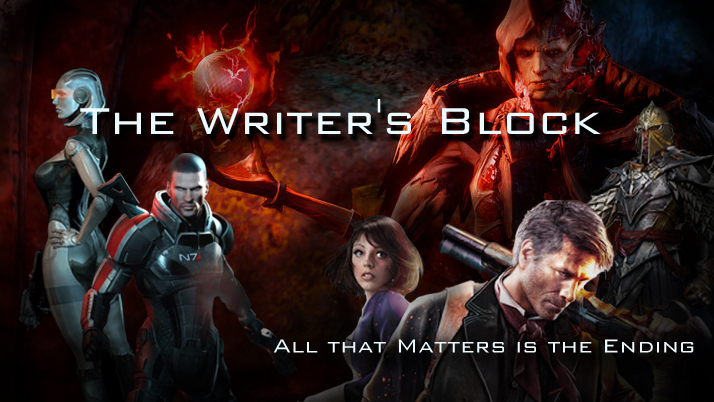
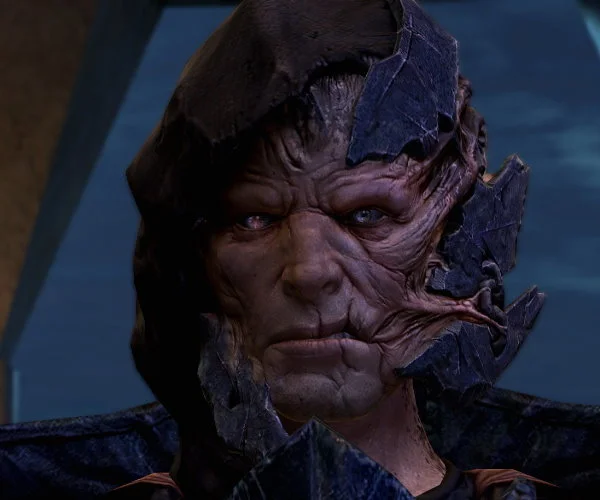


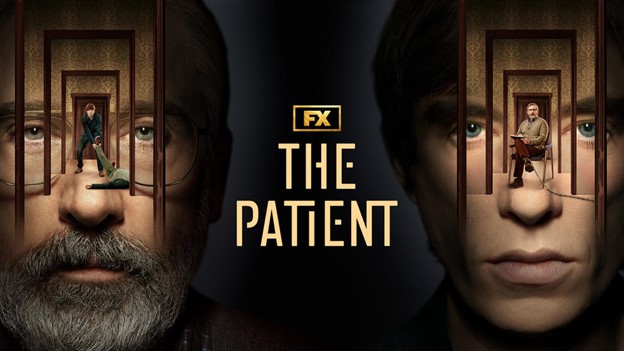
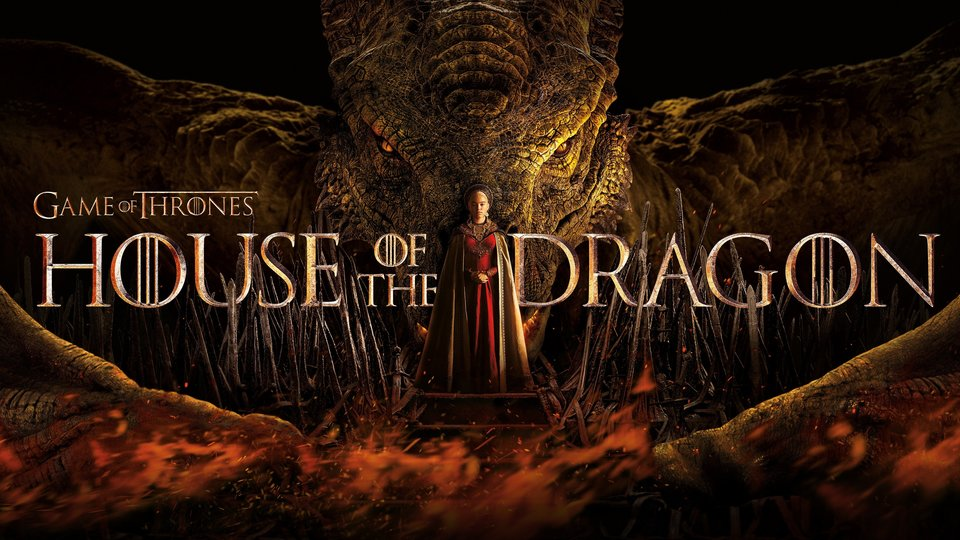
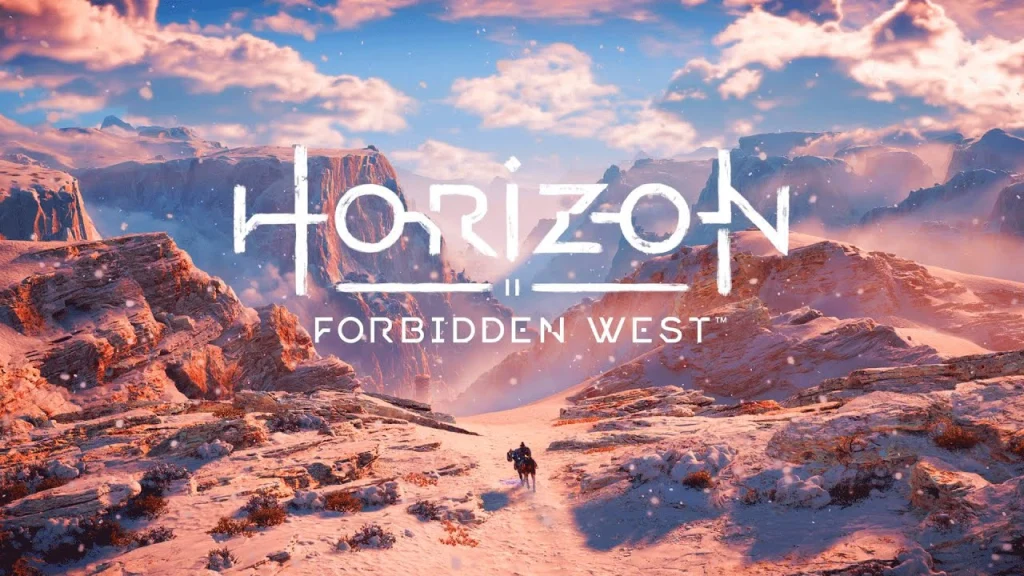

Leave a comment